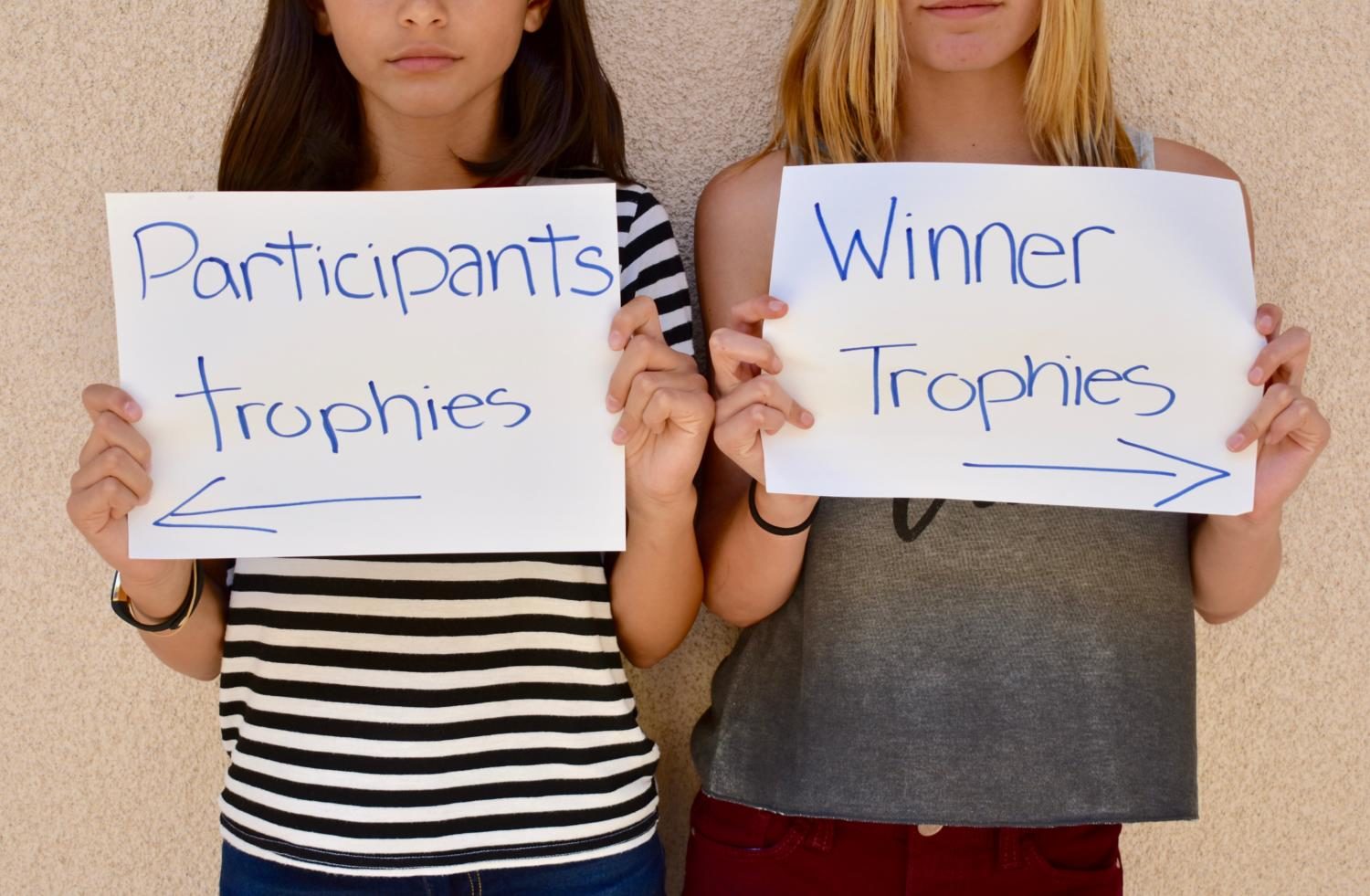What’s The Deal With Participation Awards?
Are participation awards forming a society of weaklings or increasing self-esteem?
May 3, 2017
Do you remember the good old days, where everybody on your team got an award, even the waterboy and the players who rode left bench? I didn’t realize it back then, but these were actually participation awards that focused on trying, not personal accomplishments. We didn’t reward the winners, but instead everybody who gave it their all (and paid money). That idea fosters the question: should we hand out participation trophies? Are we creating a society of wimps in rewarding losers, or are these awards nurturing children’s confidence, honoring their endeavors, and teaching them to not give up?
I believe in the latter- that participation trophies promote healthy competition and self-esteem. The goal of every game is to win, but we should not condemn these mementos. Participants toil, sweat, and struggle in an attempt to win matches. But, a lot of times, they do not succeed. In fact, 95% of all players are futile in their tries to win championships. But, should we really ignore the efforts of those who want to win? What type of world are we creating, in which nobody is rewarded for valiant attempts and hard work?
The answer is: a worse one. If people aren’t rewarded for trying, for giving something their all, and working their butts off relentlessly, why would anybody try? Why would anybody want to work, knowing that it may all be for nothing? Why would anybody strive to just lose? Especially for children learning the values of exertion and toil. Winning shouldn’t matter so much that we promote surrendering or not trying. If that weren’t a fact, we wouldn’t have second, third, or fourth place finishes; the world would be centered solely around the winner.
Yes, I get the argument, that as adults, we will not win anything for just participating. No employer is going to give you a job for just interviewing, and no college is going to accept you just for submitting your application. These are just attempts, not accomplishments. That’s not how the world works. But maybe participation trophies will teach children that they gain something from all of their hard work, experiences and struggles.
For example, let me tell you a little secret. I am not an athlete (or even slightly athletic). I’m a benchwarmer at best (on a good day, I get to sit next to the coach). Basically, I’m an Asian Urkel. So, although I love my sport (water polo) and give it my all whenever I dive into the pool, I also know that, no matter how hard I try, I will never be the next Tony Azevedo, Michael Phelps, or even a high school star.
But, maybe, that’s not the right mindset. Maybe I should tell myself that one day, I could become the best water polo player that ever lived. But frankly, I would be lying to myself. And, that’s another reason why participation trophies mean so much to me. Because I know that even though I will never be great, I am still a part of something bigger than just me. I am part of a team, I am part of a sport, and I am part of a culture. In short, participation trophies remind me that even though I may not become the next Azevedo or Phelps, I am still the best water polo player I can be, and I am learning life lessons from this sport that I would not have gained elsewhere.






